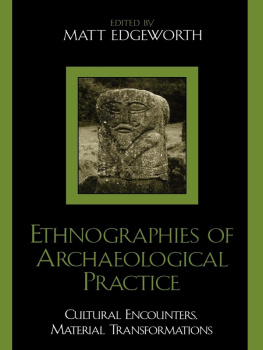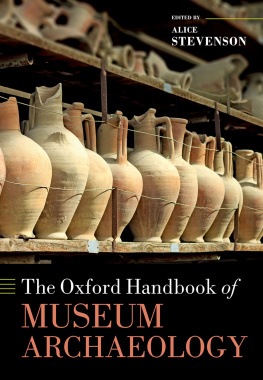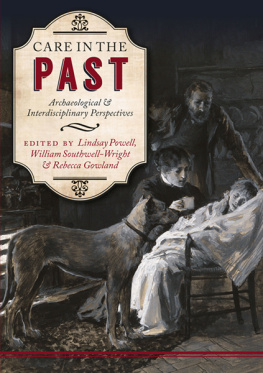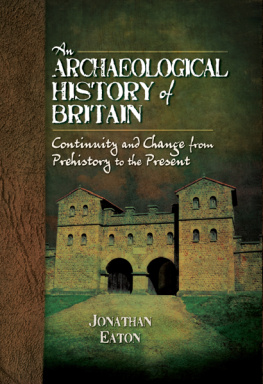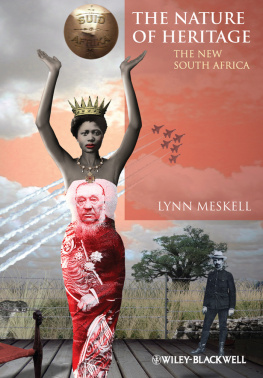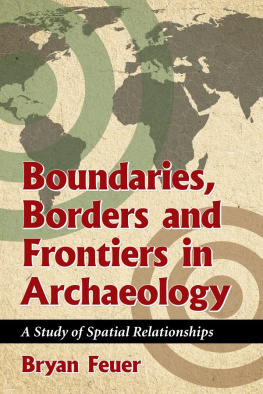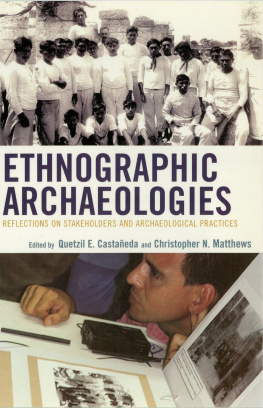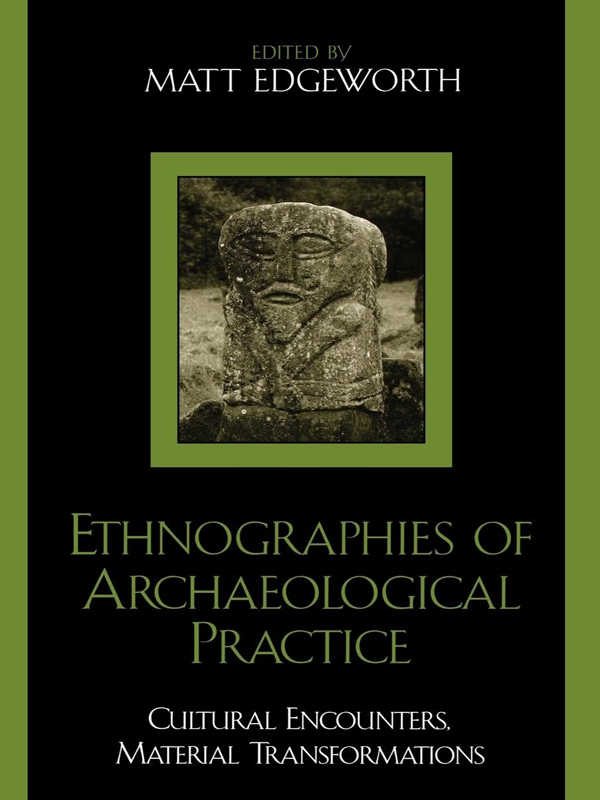Acknowledgments
The book is based on an all-day session held at the Fifth World Archaeology Congress in Washington, D.C., in 2003, entitled Ethnography of Archaeology. The session was coconvened by Denise Maria Cavalcante Gomes and me from an original suggestion by Joan Gero, who organized the congress as a whole. Various parts of the session were chaired by Robert Layton, Cornelius Holtorf, Denise, and me, and there was much lively debate between members of the panel and the audience, some of whom had already conducted ethnographies of archaeological practice themselves or have since gone on to carry out such work. It was the first time that ethnographers of archaeological practice working in different parts of the world had come together to discuss common themes and methodological issues.
Thanks to all those who took part in the session, as well as the many who have contributed to the project since. All papers have been radically revised and several additional authors invited to write further chapters for the book, which has evolved far beyond the parameters of the originating session. The support and advice of the series editors Heather Burke and Alejandro Haber have been invaluable. Adding further to the strong South American influence in shaping this volume, the detailed comments from Dnae Fiore led to many improvements in content and encouraged greater consideration of methodological issues. Another (anonymous) reviewer gave very helpful comments on the structure of the book as a whole. Claire Smith, Mitch Allen, Marian Haggard, Erik Hanson, and Sarah Walker are just some of those who have helped the book on its way to publication. Special thanks are also due to Joan Gero, Denise Gomes, Robert Layton, and Cornelius Holtorf for their encouragement at critical points in the early development of the book, and to Simon Edgeworth of Proper Websites for finding solutions to every problem encountered on the computer. In the long-standing tradition of the World Archaeological Congress publications, authors have donated all royalties from the sale of this volume to enable scholars from economically disadvantaged countries to travel to future WAC conferences.
The cover depicts an enigmatic stone carving of Celtic origin that stands on the Isle of Boa in Lough Erne, Co Fermanagh, Northern Ireland. This is the January God of Seamus Heaneys poem of that name. Like the Roman door-god, Janus, the figure has two faces. One looks forward, the other looks back. At once subject and object, the sculpture is taken here to symbolize the need for our outward-looking focus on other cultures to be counter-balanced by a more reflexive inward-looking glance at our own culture of knowledge production. The photograph was taken by Jon Sullivan of PDPhoto.org.
About the Contributors
Jonathan Bateman is information officer of the Council for British Archaeology. His main research interest lies in the relationship between archaeology and the images the discipline uses and creates, with a particular focus on photography both as a subject and as a tool for illustrating practice. His relevant publications include Immediate Realities: An Anthropology of Computer Visualization in Archaeology in Internet Archaeology 8 (2000) and Wearing Juninhos Shirt: Record and Negotiation in Excavation Photographs in Envisioning the Past: Archaeology and the Image (edited by Sam Smiles and Stephanie Moser, 2004).
Lisa Breglia is a cultural anthropologist who currently teaches at Wesleyan University in Connecticut. She has conducted extensive ethnographic and historical research in and around archaeological sites in Yucatn, Mexico. Full results of this fieldwork will be published in 2006 as Monumental Ambivalence The Politics of Heritage. Her current research and writing projects focus on cultural and intellectual property policy in the context of globalization. As a key site for this study, she examines a Switzerland-based nongovernmental organizations worldwide project to name the New 7 Wonders of the World. This investigation details tensions between the international communitys desire to promote a universal ethos of the common heritage of Humankind and the local significance of these monumental heritage sites.
John Carman has recently been appointed Research Fellow in Heritage Valuation at Birmingham University in the United Kingdom. His particular research interests include ideas about value and categorization of the archaeological heritage, and how ideas about ownership affect the management of objects, sites, and landscapes. He is also codirector with Patricia Carman of the Bloody Meadows Project on historic battlefields. His books include Valuing Ancient Things Archaeology and Law (1996), Ancient Warfare: Archaeological Perspectives ( coedited with Anthony Harding, 1999), and Archaeology and Heritage: An Introduction (2002). The first volume of results from the Bloody Meadows Project will be published in 2006.
Matt Edgeworth directs and manages archaeological projects in a commercial environment. Currently working as site director for Cambrian Archaeological Projects Ltd in the United Kingdom, he has a doctorate in archaeology and social anthropology from the University of Durham, UK, and is author of numerous excavation reports, urban surveys, and so forth. His ethnography of an archaeological excavation in England was recently published as Acts of Discovery (2003).
Ouz Erdur has a BA in economics and an MS in environmental sciences from Bogazii University, Istanbul. He received an MPhil in cultural anthropology at Columbia University, where he is completing his PhD. His research combines ethnography with the philosophy of Friedrich Nietzsche, in order to produce a critique of archaeological knowledge production in Turkey. Erdur was highly commended at the third Worldwide Young Sociologists Competition organized in 1998 by the International Sociological Association. He is founding academic director of Platform for Social Archaeology ( www.arkeoloji.org ), an independent initiative in Turkey that aims to facilitate awareness and discussion about archaeological knowledge and heritage. His publications include Archaeology, Why? How? What For? (in Turkish), which he coedited in 2003.
Denise Maria Cavalcante Gomes has a PhD in archaeology from the Museu de Arqueologia e Etnologia, University of So Paulo, Brazil. She has conducted archaeological fieldwork alongside a traditional community called the Parau, excavating archaeological sites related to the development of formative societies in the Santarm area of Amazonia. Her study of an important collection of ceramics from that region was published as a book entitled Cermica Arqueolgica da Amaznia: Vasilhas da Coleo Tapajnica (2002). Her research interests include Amazonian archaeology, complex and formative precolonial societies in Amazonia, patterns of ceramic use, iconography, gender, the study of museum collections, and archaeological theory.
Charles Goodwin is professor of applied linguistics at the University of California, Los Angeles. His interests include the study of the discursive practices used by hearers and speakers to construct utterances, stories, and other forms of talk; language in the professions (for example, analysis of the courtroom arguments used to free the policemen who beat Rodney King); the ethnography of science (including studies of archaeological field excavations and oceanographers working in the mouth of the Amazon); cognition in the workplace (he spent two years as a member of the Workplace Project at Xerox PARC); and aphasia in discourse.
Anders Gustafsson is a part-time specialist with responsibility for research and development at the National Heritage Board in Stockholm and part-time lecturer in the Department of Archaeology, Gothenburg University. His main research interest is archaeological knowledge production, often from a historical angle. Current research topics are the ideology, theory, and history of archaeological heritage management and the archaeology of the contemporary past. Since 2002 he has been associate editor of the journal Current Swedish Archaeology.

